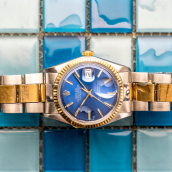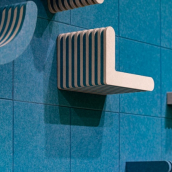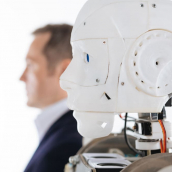

Keep up to date by subscribing to our newsletter Perspectives.


Haribo's EU trademark application for its Goldbears teddy bear was rejected by the EUIPO due to a lack of distinctiveness. Now the EU General Court has confirmed that the two-dimensional figurative trademark is too simple and too decorative to qualify for trademark protection, as Armelle Blachier explains.

Depuis le 1er octobre 2025, l’OEB autorise enfin le dépôt électronique de dessins en couleur ou en niveaux de gris dans les demandes de brevet européen. Une avancée majeure vers la numérisation des procédures et une meilleure précision visuelle des inventions, notamment dans les sciences du vivant.

The European Patent Office (EPO) has launched a series of initiatives to measure and encourage innovation in digital agriculture across the EU. Emma Cuillery outlines the key findings and explains the important role of digital technologies and patents in ensuring sustainable food security.

In June 2025, the Paris Court of Appeal ruled in favour of luxury watchmaker Rolex in a longstanding dispute with Pinel et Pinel over its watch winders, finding Pinel liable for unfair competition, misleading commercial practices and parasitism, as Florence Chapin explains.

The copyright cases featuring the Tripp Trapp highchair are increasing. Discover what the rulings reveal about the limits of copyright protection in the EU.

A recent order by the Central Section of the Unified Patent Court (UPC) in Munich reinforces that any late request for written exchanges in a revocation action is only valid if it is justified by new evidence or procedural defects.

We’re excited to announce that the 39th MARQUES Annual Conference will take place from 16–19 September 2025 at the World Forum in The Hague, Netherlands.

The General Court of the EU has confirmed the partial revocation of the Airbnb trademark for ‘advertising services’ (class 35), finding that a business promoting its own offerings does not constitute an ‘advertising service’ aimed at third parties – a key legal lesson for branding strategies.

The EUIPO has refused the attempt by the Piaggio Group, manufacturer of the iconic Vespa, to register a three-dimensional trademark representing the shape of a scooter. The failure of the 3D trademark registration illustrates once again the difficulty of protecting non-traditional trademarks.

Following a recent decision by the Swiss Federal Administrative Court confirming that an artificial intelligence (AI) system cannot be the inventor of a patent, Robert Balsters explores the legal and practical realities of AI-assisted inventions and the future of AI patent inventorship.

What are geographical indications (GIs) and why do they matter? Inspired by his summer barbecue, Matteo Mariano explores some of the GIs that protect food and drinks.